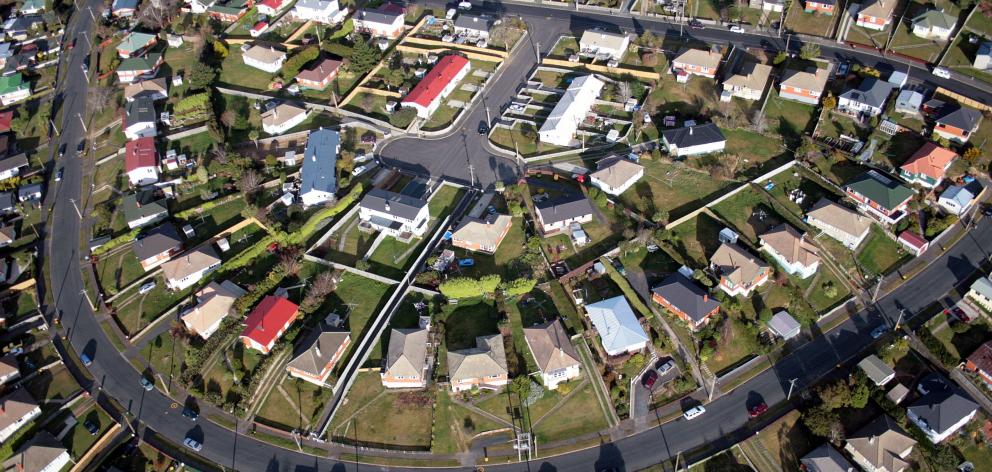
New Zealand is one of four countries most susceptible to a housing market crash due to an explosion in house prices and household debt, an international report warns.
Credit rating agency Moody's rates New Zealand, Australia, Canada and Sweden as the advanced economy nations most exposed to a housing correction, which could spill over to the broader economies.
House prices in New Zealand have soared in real terms by 30% in three years, closely resembling what happened in Spain, Ireland and the United States "on the eve of their respective housing market corrections", the Credit Profiles Resilient to Rising Household Debt and Stretched Housing Affordability report warns.
"New Zealand is most exposed due to its economy's heavier reliance on residential construction, the potentially more volatile nature of increased housing demand, households' exposure to interest rate shocks, and significant pressures on housing affordability."
While mortgage lending restrictions introduced by the Reserve Bank requiring borrowers to save bigger deposits had helped stabilised the financial sector, a significant housing market downturn could undermine economic growth and spark job losses.
The government could also be forced to bail out banks if they came under "acute" pressure.
Real Estate Institute data released today shows the national median house price hit a record $546,000 last month, up 10% year-on-year.
In Auckland, the median selling price is now nudging $900,000, more than 10 times the average household wage, making the Auckland market among the most unaffordable in the world.
House price inflation has been fuelled by record high inward migration, historically low interest rates, and a severe shortage of available properties, estimated to be more than 13,000 in Auckland alone.
As house prices have soared, so too has household debt. While homeowners who have stretched themselves to secure over-priced properties might manage mortgage repayments while interest remains low, that could change quickly if rates head north.

Moody's also noted that population growth in New Zealand was forecast to remain strong for several years.
"While these projections point to sustained demand in housing, a reversal in population trends would lead to a sharp increase in property vacancies, depressing house prices and further weighing on demand," the report says.
A pull-back by foreign investors on the back of Chinese capital controls and new lending restrictions here aimed at the investor market were also a "source of risk".
Labour's housing spokesman Phil Twyford said the Moody's report was a timely warning.
"Nobody in their right mind wants to see a crash, but the fact is National has put all Kiwi home owners at risk by allowing the housing crisis to spin out of control.
"The Prime Minister likes to advise first home buyers to be careful about buying in an over-heated market. Labour thinks a better approach is to take action to take the heat out of the market," Mr Twyford said.
The country needed policies to stabilise the market and make housing more affordable, by banning foreign buyers, taxing speculators, fixing the planning system, and increasing the supply of housing.
"That's what Labour will do."
Finance Minister Steven Joyce said Moody's reaffirmed New Zealand's Aaa credit rating just three weeks ago, citing our high economic resilience, institutional strength, and strong fiscal position compared to other countries.
"At the time they noted our elevated household debt as a risk but that the likelihood of that risk crystallising is low. I note in this latest release that Moody's stated that a reversal in house prices would need to be accompanied by other long-lasting negative shocks to have any effect on New Zealand's credit profile."
Mr Joyce said New Zealand's household debt was high by historical standards. But it was important to note that household equity was also strong, and the financial sector was resilient, with strong capital and liquidity.
LVR restrictions had reduced the share of risky loans on bank balance sheets, he said.
The reasons for higher than normal borrowings included historically low interest rates, our strong economy by world standards, and a shortage of housing supply.
"The housing supply shortage is currently being addressed with much greater construction - which is a good thing, and that is why construction as a percentage of our GDP is growing.
"It is however important that people are careful about the prices they pay for housing in the current market. Supply is now increasing, and interest rates won't stay low forever. People need to think about what the cost of their mortgage might be in three or four years' time, not just the mortgage payments they can afford today."
New Zealand Bankers' Association chief executive Karen Scott-Howman said the Reserve Bank had "stress-tested" our banks and found them strong enough to avoid a severe downturn.
"Let's not forget that during the global financial crisis there were no bank failures or bail-outs here.
"Our banking sector is strong, stable and very well-regulated."












